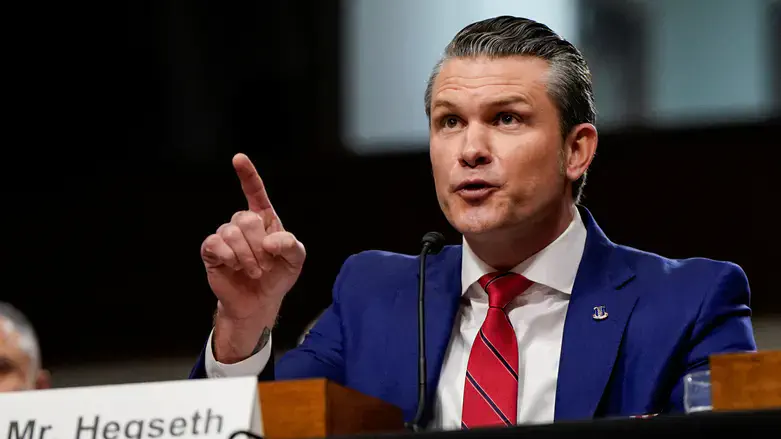
The official watchdog group at the Pentagon announced today (Thursday) that it has opened an investigation into "Signalgate" and US Defense Secretary Pete Hegseth's role in the affair.
On March 15, Hegseth participated in a group chat of Trump Administration officials, during which details about US military strikes against the Houthis were sent to Atlantic editor in chief Jeffrey Goldberg, who had been accidentally added to the chat.
The Pentagon’s Office of the Inspector General stated, “The objective of this evaluation is to determine the extent to which the Secretary of Defense and other DoD personnel complied with DoD policies and procedures for the use of a commercial messaging application for official business."
Hegseth has denied sharing American "war plans" in the chat, and the administration has attempted to downplay the significance of the incident.
Goldberg decided to publish the full text of the chat in response to the Administration's denials. “If this text had been received by someone hostile to American interests — or someone merely indiscreet, and with access to social media — the Houthis would have had time to prepare for what was meant to be a surprise attack on their strongholds," Goldberb said while explaining his decision.
Citing two US officials, The Wall Street Journal reported that the chat, which was inadvertently disclosed to The Atlantic magazine, involved US National Security Adviser Mike Waltz sharing details about an Israeli intelligence source that helped identify a Houthi missile expert targeted in a US strike in Yemen. The Israeli government has since expressed concerns about the public exposure of their involvement in the operation.
The leaked messages, sent by Waltz, discussed the real-time intelligence that led to the strike, including information on the missile expert’s location before the building he entered was destroyed. Israeli officials privately complained to US counterparts about the breach, given the sensitivity of the intelligence provided. This incident underscores the delicate nature of intelligence cooperation between the US and its allies, particularly when it involves crucial, on-the-ground sources.

